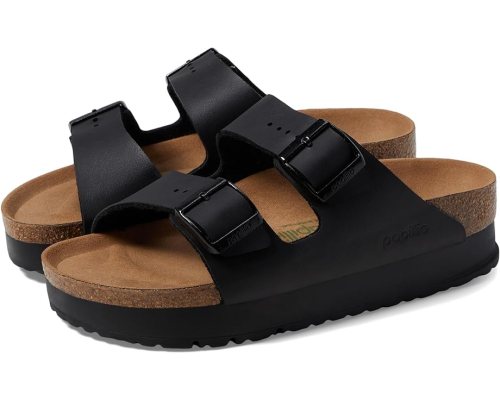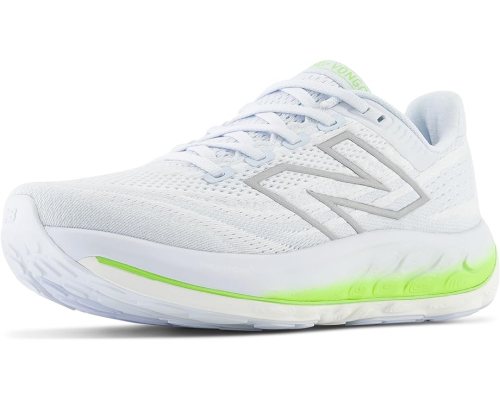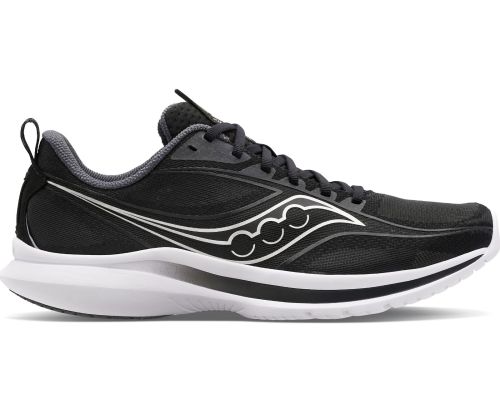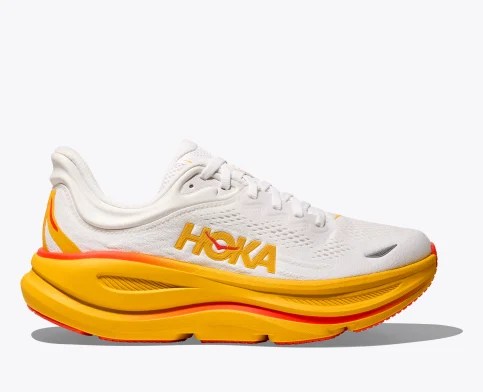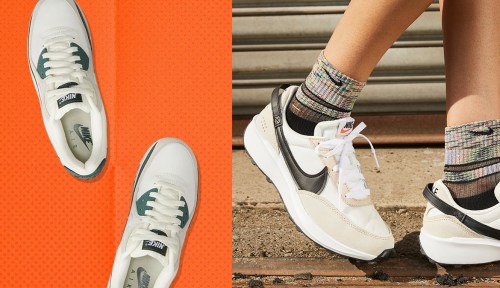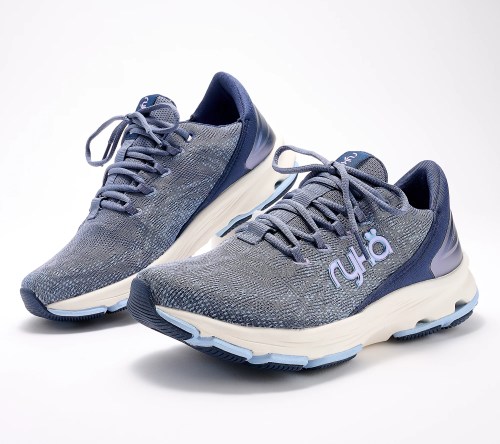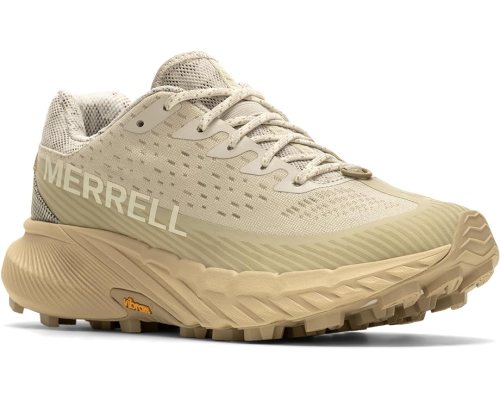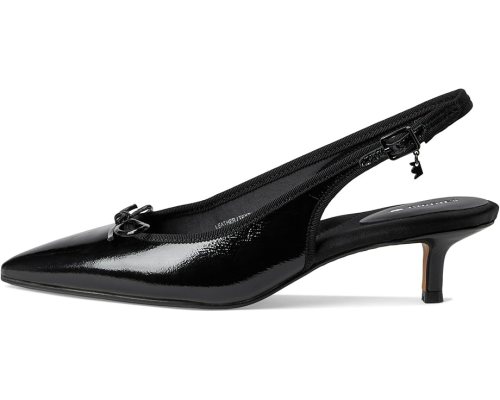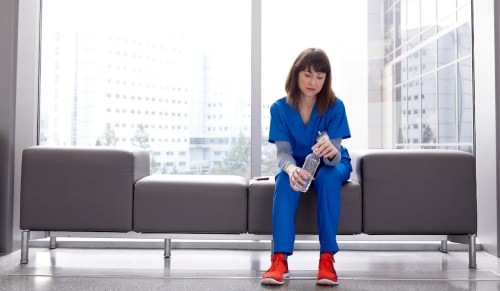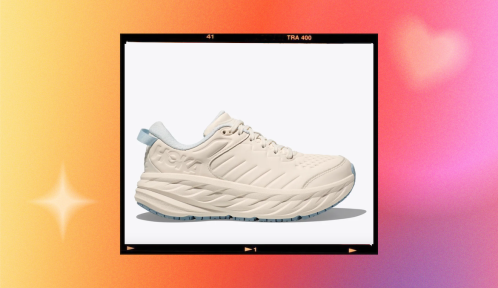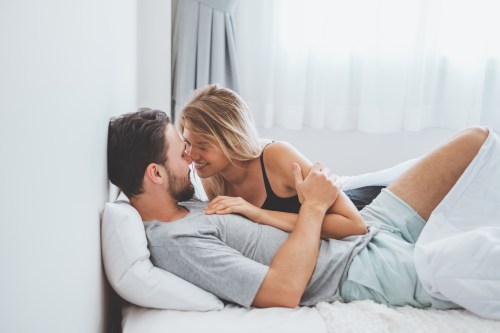Our editors independently select these products. Making a purchase through our links may earn Well+Good a commission
Experiencing pain of any kind is no fun, especially if it has to do with the sciatic nerve. “Sciatica nerve pain is pain that radiates from the sciatic nerve at the level of the lower spine down the buttocks and back of the leg,” says Nelya Lobkova, DPM, a podiatrist based in New York and founder of Step Up Footcare. It’s caused by the compression of the sciatic nerve at the base of the spine, likely due to a herniated disk along the back bone, and can make everyday movements no walk in the park. Thankfully, sciatica nerve pain can be managed through a combination of stretching, strength training, and wearing the proper shoes (yes, shoes make a big difference). We tapped Dr. Lobkova for her input on the best shoes for sciatica. Ahead, you’ll find their recommendations and tips on what to look for.
Experts in This Article
board-certified podiatrist and founder of Step Up Footcare in New York City
The best shoes for sciatica, at a glance
- Best sandal: Birkenstock Arizona Platform, $120
- Best running shoe: New Balance Fresh Foam x Vongo v6, $165
- Best running shoe runner-up: Saucony Kinvara 13, $120
- Best loafer: Lifestride Zee Slip-on Loafers, $70
- Best walking shoe: Hoka Bondi 9, $170
- Best walking shoe runner-up: Ryka Devotion X Walking Shoe, $120
- Best hiking shoe: Merrell Agility Peak 5, $120
- Best dress shoe: Birdies The Goldfinch Kitten Heel, $195
Shop 8 of the best shoes for sciatica
Sizes: 5-11.5 | Colors: 6
Another iteration of the Arizona line, the Birkenstock Arizona Platform is Dr. Lobkova’s sandal of choice. That’s because it has a cork footbed, which provides arch support, and molds to your feet with each wear. It’s also lightweight and has adjustable straps, so your sandals don’t slip and slide. What can we say? Birkenstocks reign supreme when it comes to foot-friendly sandals.
Pros:
- Contoured footbed
- Lightweight
- Adjustable straps
Cons:
- Harder to wear in cold weather
- May run narrow
Sizes: 5-13, in standard and wide | Colors: 4
The New Balance Fresh Foam x Vongo v6 is a cushioned sneaker with a four millimeter heel-to-toe drop. You can go the distance thanks to the shoe’s knit upper, which cradles your feet as you stride out. Constructed with a foam footbed, these kicks will cushion any hard blows to your back and prevent compression on your sciatic nerve.
Pros:
- Cushioned
- Breathable
- Helps control pronation
Cons:
- Limited color options for a running sneaker
Sizes: 5-12, in standard and wide | Colors: 15
Dr. Lobkova recommends these Saucony shoes, which have maximum cushioning and support and a 4mm drop. They’re lightweight and responsive, and have mid-foot contouring. The upper is breathable and contains recycled materials, too.
Pros:
- Lightweight
- Cushioned
- Roomy toe box
Cons:
- May run small
Sizes: 5-11, in standard and wide | Colors: 10+
Dressing to impress, but want to stay comfortable? Dr. Lobkova recommends the Zee slip-on loafers. While low, the platform provides shock absorption, and the cushioned footbed levels out any pressure on your joints. It comes in gray, black faux leather, and six other colors.
Pros:
- Cushioned
- Insole has shock absorption
- Sole has traction
Cons:
- Not very breathable
Sizes: 5-12, in standard or wide (half sizes available) | Colors: 20+
We’ve featured the Hoka Bondi in countless articles because, not only are they cute and comfortable, they’re approved by the American Podiatric Medical Association (APMA). With a generous stack of cushion and a shock-absorbing heel, they’re a great shoe for everyday walks and runs. They also offer neutral arch support and heel stability to ensure they’re a crowd-pleaser with most foot types.
Pros:
- Neutral support for all types of walkers and runners
- Extremely cushioned
- Lots of color options
Cons:
- May be too bulky for some
Sizes: 5-12, in standard and wide | Colors: 18
Ryka shoes are designed specifically for women’s feet and have a narrower heel and more room in the toe. These walking shoes use a breathable mesh upper, and soft and responsive cushioning for shock absorption. They also have built-in compression channels, which provides additional firmness in the midsole.
Pros:
- Soft cushioning
- Extra support in the midsole
- Breathable
Cons:
- Runs narrow
Sizes: 5-11 (half sizes available) | Colors: 3
Just as walking can help relieve sciatica pain, so can hiking—as long as you’re taking care and wearing well-cushioned shoes. This pair from Merrell features a rugged Vibram outsole for solid traction and a super cushy insole with arch support. The top of the shoe features mesh for breathability, while the lower is water resistant to keep your feet feeling dry.
Pros:
- Generous cushion and arch support
- Water resistant design
- Vibram traction on outsole to handle any terrain
Cons:
- No wide sizes available
Sizes: 5-12 (half sizes available) | Colors: 2
You might be surprised to see a pair of kitten heels as our pick of the best dress shoes for sciatica nerve pain, but hear us out. Birdies goes above and beyond when it comes to cushioning and arch support in their flats, mules, and kitten heels. If you’re hoping to find a dressy shoe that doesn't have a massive heel (per podiatrist recommendations), Birdies has a wide variety of styles and plenty of embellished patterns to choose from. We especially love the sleek silhouette of The Goldfinch Kitten Heel.
Pros:
- 7 layers of cushion
- Good arch support for a heel
- Comfy slingback strap
Cons:
- No wide sizes
Should you walk when you have sciatica?
“Walking, in fact, should help when you have sciatica,” says Dr. Lobkova. “Sitting for prolonged periods of time can exacerbate sciatica because sitting compresses the piriformis muscle that is overlying the sciatic nerve,” she says. However, when walking, it’s important to make sure you have the proper posture. “Make sure you are lifting the knees high enough so that the feet do not shuffle and the back is straight,” she recommends.
Can wearing certain shoes help with sciatica?
“If shoes fit properly, meaning both length and width is sized correctly, there is a decreased chance of fall or injury causing sciatic nerve compression,” Dr. Lobkova says. Additionally, supportive and stable shoes can promote good posture, which can prevent sciatic nerve irritation.
What to look for in a shoe for sciatica
Heel-to-toe drop
A heel-to-toe drop is defined as the comparison of the amount of cushioning beneath your heels and the amount beneath your toes. Dr. Lobkova recommends shoes with lower heel-to-toe drop to prevent a pressure load on your hips and knees. She recommends a shoe that is 0-8mm drop, because higher heel to toe drop causes the upper body to tilt forward, which exacerbates sciatica.
Heel height
When picking shoes for sciatica, look for a shoe with a heel height no higher than one inch. “A heel height above one inch causes the torso to tilt forward over the pelvis, which can worsen sciatica pain,” explains Dr. Lobkova.
Stability
To reduce strain on your sciatic nerve, you’ll want a shoe that’s supportive and rigid, particularly in the midsole and heel counter. To determine whether your heel counter is firm, “make sure you cannot pinch this part of the shoe,” Dr. Lobkova says. You’ll also want to check for a rigid midsole because “support from a shoe that is not too flexible has midsole rigidity,” she adds. To test, try to bend your shoe’s toe box and heel in half. Rigid midsoles shouldn’t fully fold in half.
Cushioned midsole
Finally, Dr. Lobkova says to look for shoes that will adequately absorb shock through a cushioned midsole. “This diminishes the stress on the weight bearing areas of the body, including the heels, knees, and notably the lower back,” she says.
Finding the right shoes is half the battle, but now you’ve got the resources and knowledge to make it happen.
Frequently asked questions about shoes for sciatica
Is there a way to reduce pain when you have sciatica?
Initially, when experiencing sciatica pain, stop what you are doing and ice. Ice reduces the inflammation around the nerve root and thus reduces the pain. Ice for 20 minutes on and 10 minutes off over the course of an hour twice a day for the first day or two. After that, it may be helpful to do some light stretching (particularly hip and glutes), apply heat, and walk to increase the blood flow to the area and help reduce inflammation. Physical therapy and acupuncture may be helpful as well. If pain persists, see a specialist, such as a pain management doctor or orthopedist.
How does arch support in shoes affect sciatica?
Having the right arch support for your foot type will help keep your body in alignment, which, as our expert said, is important for preventing sciatica pain. Of course, everyone’s feet are different, so if you’re not sure what type of arch support you need, you can always visit a podiatrist.
Can wearing the wrong shoes worsen sciatica symptoms?
As Dr. Lobkova shared, wearing high heels or shoes without proper support and cushioning can exacerbate sciatica nerve pain. If you’re noticing increased pain, take stock of the shoes you’re wearing. And, if a shoe-swap doesn’t help relieve symptoms, it’s likely time to speak with a doctor.
Looking for supportive boots as well? Check out our list of the best boots with arch support here.
Sign Up for Our Daily Newsletter
Get all the latest in wellness, trends, food, fitness, beauty, and more delivered right to your inbox.
Got it, you've been added to our email list.

